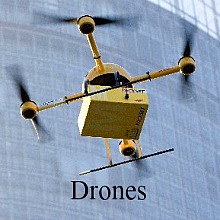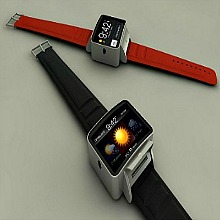 Everybody has done it: you’re sitting at the computer or on your phone, maybe, waiting for a page to load. The cursor is spinning, you wait some more. You click to another tab in search of something to entertain you while you wait…Now THAT page won’t load, nor will the next tab you try to pull up.
Everybody has done it: you’re sitting at the computer or on your phone, maybe, waiting for a page to load. The cursor is spinning, you wait some more. You click to another tab in search of something to entertain you while you wait…Now THAT page won’t load, nor will the next tab you try to pull up.
It’s frozen, completely frozen, and you have to restart your system which means you have to wait even longer. At best this will end as a minor irritation, at worst? Well…things can get a bit dramatic and if there was any unsaved work lost as a result, small children should be advised to cover their ears. All because of impatience and an inability to wait.
Thanks to technology, our lives are much easier than they were a generation ago and information is readily available at our fingertips all-day, everyday. Yet because of this we expect more data at a faster rate and instant results. CNN better live tweet during a Presidential Address or they are going to lose out to another news source. Fans expect video highlights from a big game even if it’s only in the third quarter, plus they demand real-time scores as well. And anyone with a smartphone has hour-by-hour weather forecasts whenever they want – sure a major storm probably won’t roll in between 1pm – 2pm, but if it did we’d be the first to know!
Needless to say, people today expect up-to-the-minute information and it better be pretty good to hold our attention. The average attention span for an adult in the US in 2000 was 12 seconds. As of 2013 that number has fallen to a mere 8 seconds. In comparison, a simple goldfish, such as the type one might keep as a pet, has an attention span of 9 seconds. A goldfish has beaten the human race when it comes to how long we’ll give our attention to something. Obviously these goldfish have never owned an iPhone.
Some researchers blame the oversaturation of info from the web and the “need to know everything and no time to wait” mentality that most of us have these days for those declining statistics. So is the inundation of information making people smarter and more in the know? Not necessarily since average internet users only skim through articles and updates that are presented to them instead of really delving into the topic at hand. According to a Stanford University research study found that people who are regularly bombarded with electronic information have a difficult time paying attention and switching from one task to another.
 Which brings up the fact that multitasking is now being found to be much less productive than originally thought. As it turns out, throwing together a meal while following a recipe, helping your child with math homework, and catching up on the latest stories on the six o-clock news might not turn out as well as you hope. And checking your email and replying to text messages during a meeting at work? Not going to work, something is going to slip by you.
Which brings up the fact that multitasking is now being found to be much less productive than originally thought. As it turns out, throwing together a meal while following a recipe, helping your child with math homework, and catching up on the latest stories on the six o-clock news might not turn out as well as you hope. And checking your email and replying to text messages during a meeting at work? Not going to work, something is going to slip by you.
It is now commonly believed that the brain can’t physically perform two or more tasks at once unless it’s something you can do on autopilot such as eating while flipping through a magazine or folding clothes and watching television. Sure, you might be able to talk on the phone while out for an evening stroll, but walking through a busy, downtown area might get a bit more dangerous. That’s because while you might see and hear the cars around you while at the same time listening to the person on the other end of the line, you are only processing one of those things.
The University of London conducted a study which showed that participants who multitasked during cognitive tasks experienced IQ score declines similar to having no sleep due to being up all night or to smoking marijuana. The IQ points for multitasking males were lowered to the average range of 8 year-old children, yet there was no change if only one task was performed at a time.
Perhaps multitasking might not be that point of pride it has always been, but is it really all that bad for us? Though cognitive impairment from multitasking has always been thought to be temporary, new research is beginning to suggest otherwise. UK scientists at the University of Sussex compared the amount of time people spend on multiple devices, such as texting while watching program on television, to MRI scans of their brains. They found that high multitaskers had less brain density in their anterior cingulate cortex, the region of the brain responsible for empathy as well as cognitive and emotional control.
So is our multi-device using, multitasking ways to blame for our short attention spans and emotional outbursts at frozen computer screens? Though more research is needed to see if any actual physical damage to the brain is occurring, recent study findings are definitely give everyone something to think about.
The University of Sussex lead study author and neuroscientist Kep Kee Loh remarked, “I feel that it is important to create an awareness that the way we are interacting with the devices might be changing the way we think and these changes might be occurring at the level of brain structure.”






